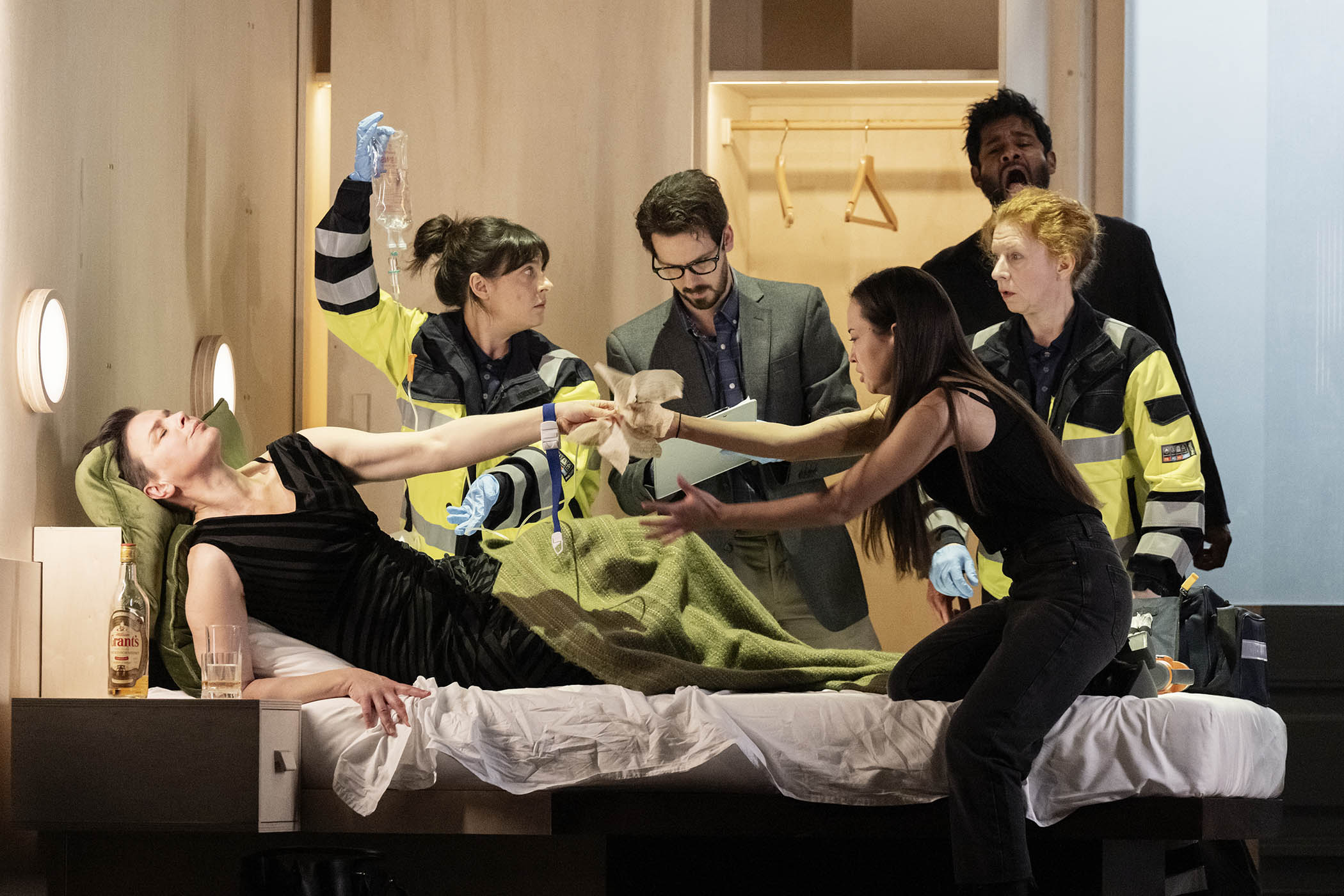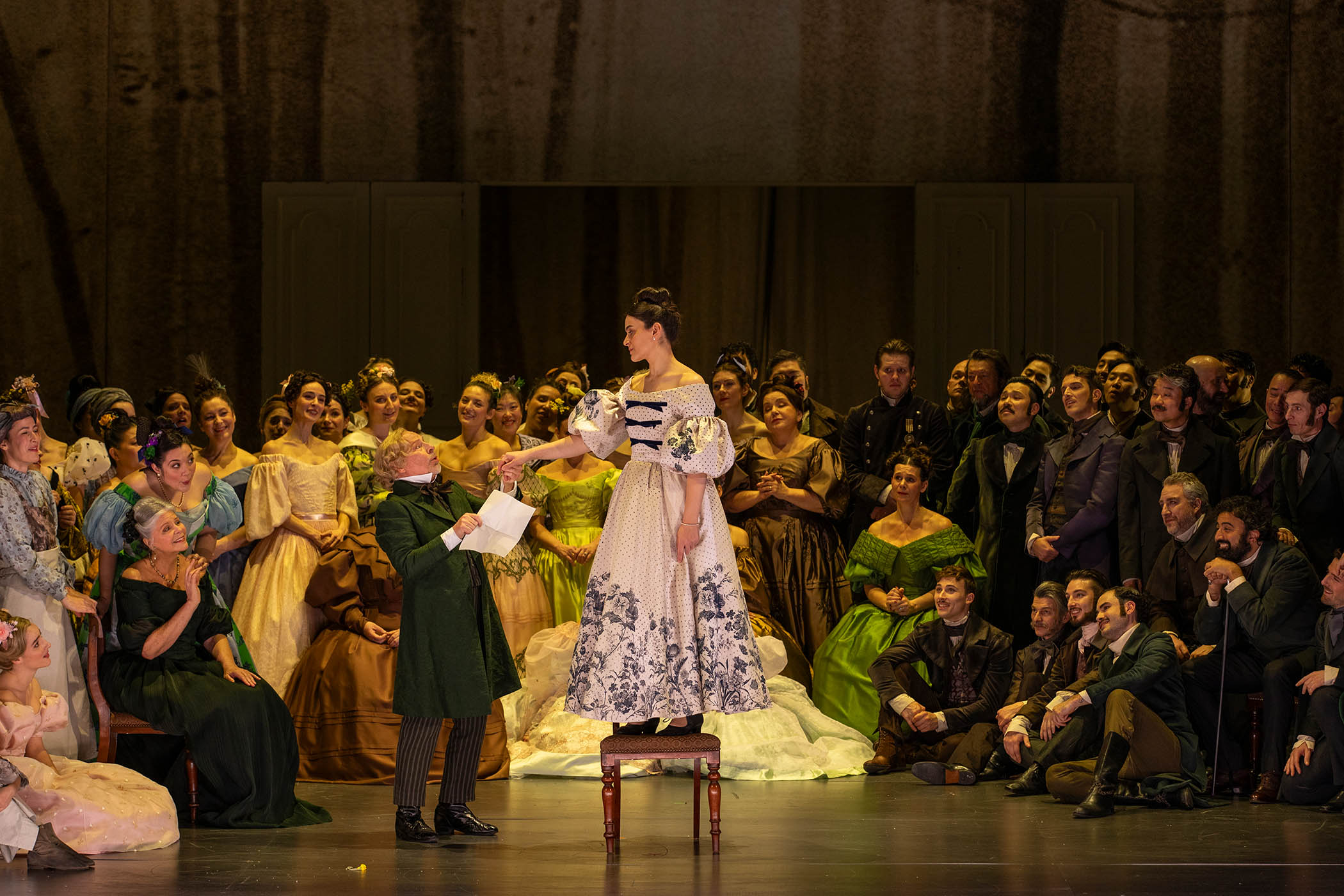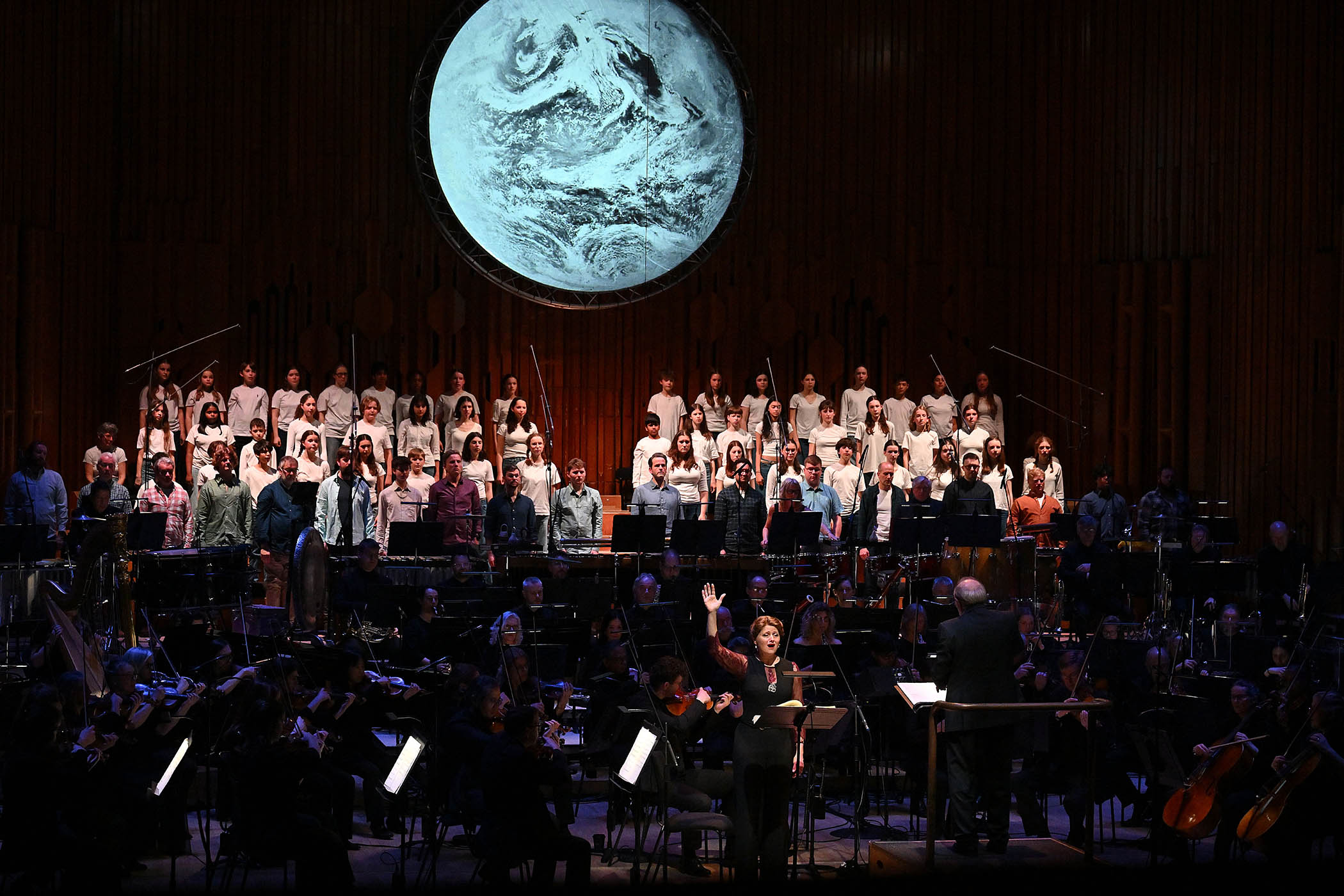Imagine mist rising from a boiling sea. Now think of the buzzy whisper of a viola d’amore – an 18th-century stringed instrument whose very name means love – emerging from the noisy pulsations of an orchestra at full tilt. Nothing is normal about Leoš Janáček’s enigmatic late opera The Makropulos Case (1925). It has no parallels, even in the Czech composer’s own, always idiosyncratic work. As well as that startling use of a viol, to suggest the inner life of the icy heroine, the score requires toy drum and brass-and-percussion band, and why not add a few castanets too? Dense with text, the libretto is based on Karel Čapek’s “legal comedy” (if that sounds like an oxymoron, it is) about a woman, Emilia Marty, still alive aged 337, thanks to a life-giving elixir.
Janáček’s music, to make one broad observation, is shaped by the rhythms of Czech conversation. The Royal Opera’s first-ever staging, directed by Katie Mitchell, has the benefit of a music director, Jakub Hrůša, who was born in the city of Brno, where Janáček lived. The precision with which Hrůša cues each singer, each instrument, in this breakneck score, reflects his exact understanding of his musicians’ needs. Janáček surely tops any near-impossible-to-perform chart. The fearless orchestra and characterful ensemble cast excel, with the Lithuanian soprano Ausrine Stundyte glacial, inscrutable and commanding as Marty. Around her, a dismal gaggle of men hover and drool, each sharply defined by Sean Panikkar (Gregor), Johan Reuter (Prus), Henry Waddington (Dr Kolenaty) and more.
Bravely interventionist in her approach, Mitchell may annoy at times with her radical reimaginings, but she wrestles seriously with her material to thought-provoking effect. Inevitably, to some, it’s merely provocative. A couple of pantomime booers announced their presence early on. Did they object to the update, beautifully achieved in Vicki Mortimer’s chic hotel designs, or to the introduction of a lesbian love affair between the young Krista (Heather Engebretson) and Marty? Or was it the presence of WhatsApp messaging, shown as live on a screen above the stage, complete with WTF-style abbreviations. This was a witty if risky distraction from the complex legal goings-on being sung, but maybe we never understand those, anyway. The music expresses everything about a woman’s life that has become a husk. Mitchell, citing misogyny, has said this will be her last opera work. I hope she reconsiders. No one should condemn a change of mind.
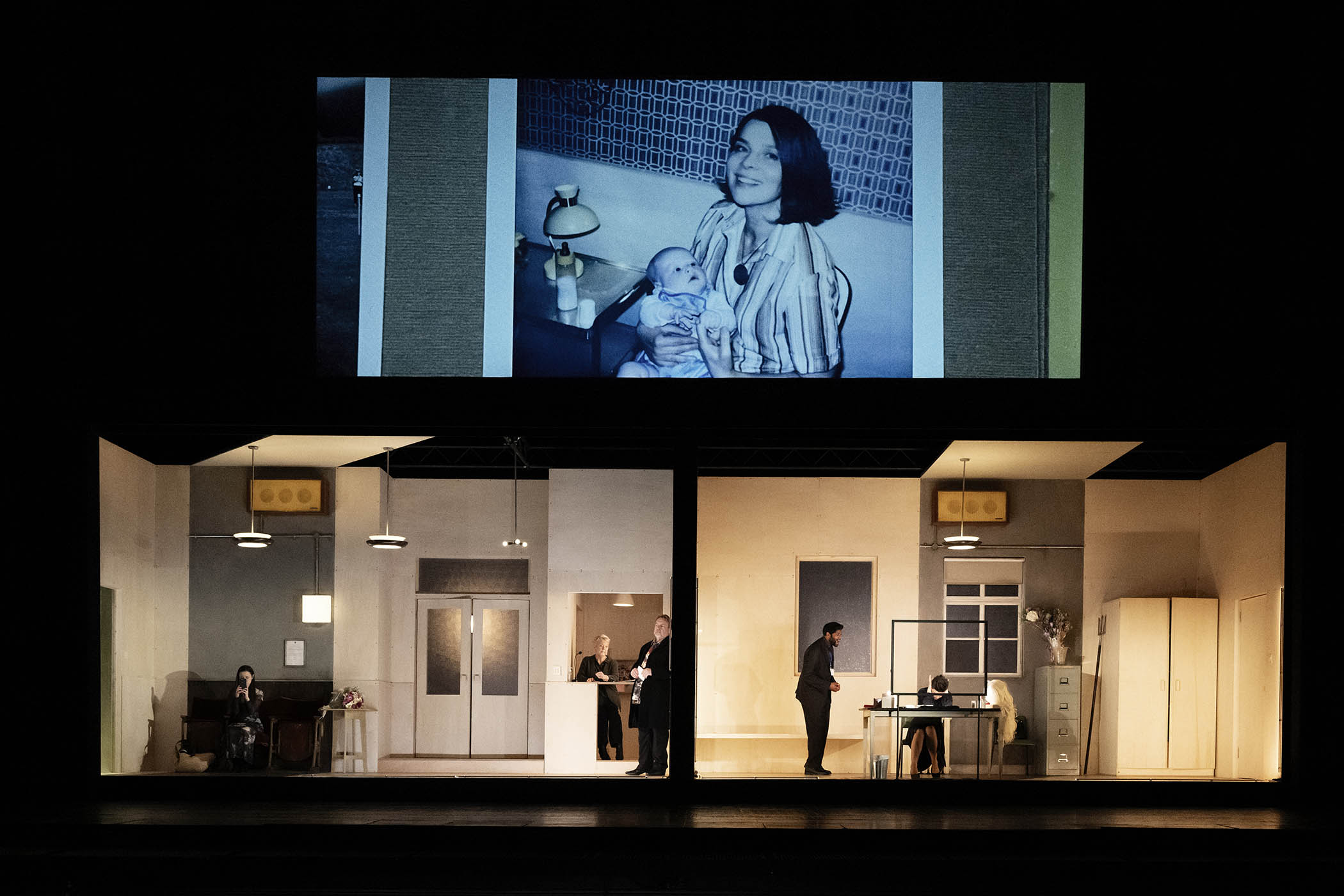
The cast of The Makropulos Case, revived at the Royal Opera House with its ‘beautifully chic hotel designs’
Mark-Anthony Turnage once intimated he might give up opera. We should be glad he did not. Since Greek (1988), based on the play by Steven Berkoff, he has found rich source material in existing fictions: earlier this year, Festen, after Thomas Vinterberg’s film (The Celebration), and now The Railway Children, from Edith Nesbit’s 1906 novel as well as the 1970 film starring Jenny Agutter as Bobbie. Her memorialised utterance on her father’s homecoming –“Daddy, my Daddy!” – survives intact in this adaptation. Delivered unaccompanied across a yearning leap of more than an octave and a half, these words end the opera, prompting a gasp of recognition on first night.
Why transpose a work fabled for its success in one medium into another? The straightforward answer is out of homage and affection. Turnage and Rachael Hewer, his partner and librettist, wrote their two-act version, for eight singers and 16 players, in lockdown. The story, crisply directed by Stephen Langridge, with appealing designs by Nicky Shaw and her team, has been updated to a cold war 1980s. Turnage can absorb any musical style while retaining his own fierce, muscly and distinctive compositional voice. Train noises punctuate: a dissonant fortissimo screech like a guard’s whistle ignites the action, followed by a lurch and chug of two bass clarinets, contrabassoon and low strings. Piano arpeggios propel the work forwards.
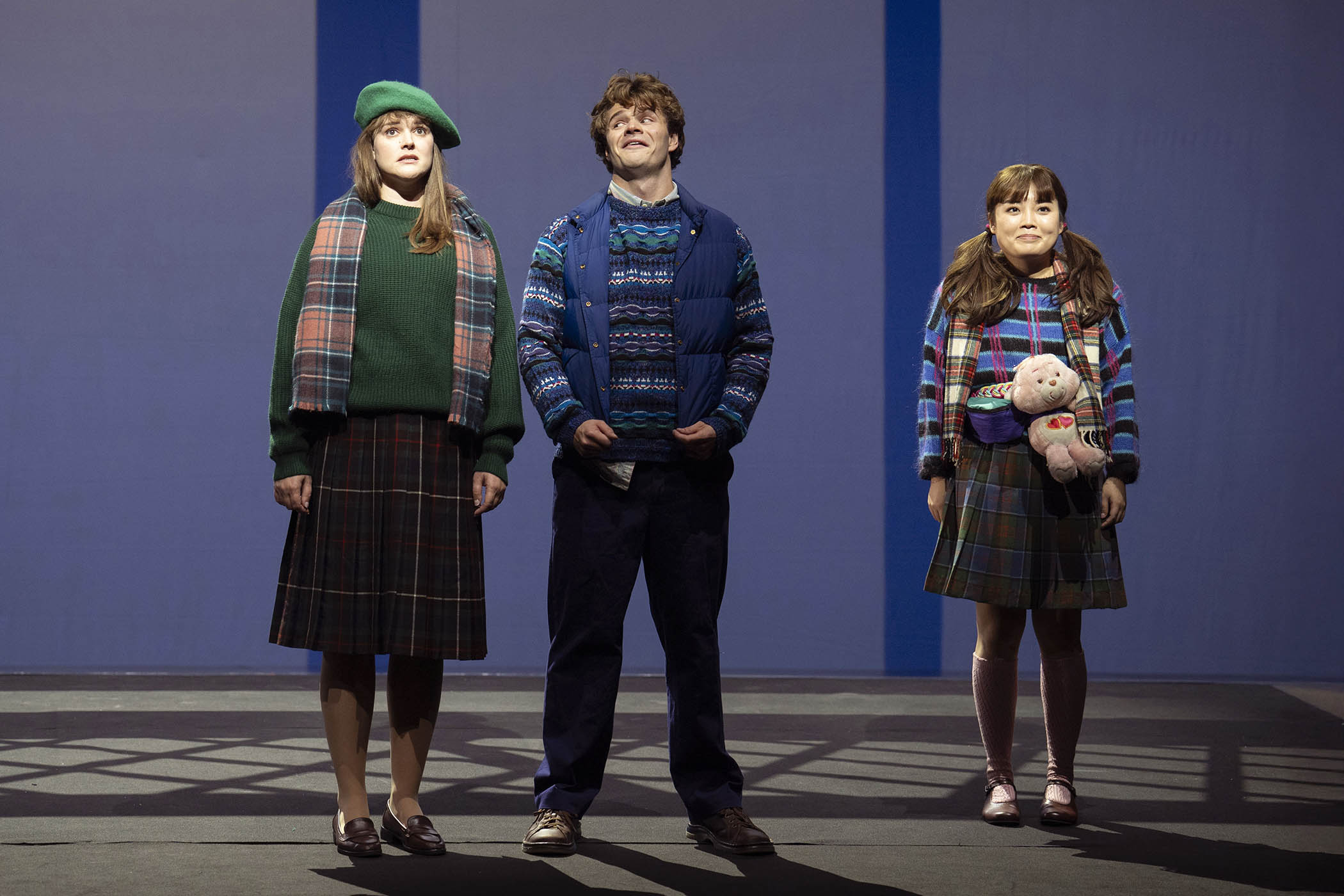
The lively cast and chorus of The Railway Children, conducted by Tim Anderson, were led by Jessica Cale, Matthew McKinney and Henna Mun as the children
Hewer’s text was impressively audible and is well judged for singers. The lively cast and chorus, conducted by Tim Anderson, were led by Jessica Cale, Matthew McKinney and Henna Mun as the children: talented young singers with promising futures. There were a few longueurs, particularly in the climactic landslide scene, which can easily be fixed.
This world premiere is a highlight of Glyndebourne’s autumn season, a replacement for the much missed annual tour. That initiative, which gave wider audiences a chance to sample the company’s work, was cancelled in 2023 when the Arts Council England severed vital funding. Will Margaret Hodge’s review of the cultural agency, due to report shortly, address this loss?
Dead Man Walking (2000), by composer Jake Heggie and librettist Terrence McNally – the most performed 21st-century opera to date – draws on the 1993 memoir by the American nun Sister Helen Prejean and the Oscar-winning film (1995) starring Susan Sarandon and Sean Penn. English National Opera’s (ENO) new production, directed by the company’s artistic director, Annilese Miskimmon, is its first full staging in the UK. The opera’s subject, handled with grace, is capital punishment and the nature of forgiveness. Two families are torn apart by a double murder, but so too is that of the accused, Joseph De Rocher. Sister Helen risks her faith and sanity as De Rocher’s spiritual adviser, quoting the biblical aphorism “the truth will set you free”. He admits his guilt, before being strapped to an execution gurney.
Related articles:
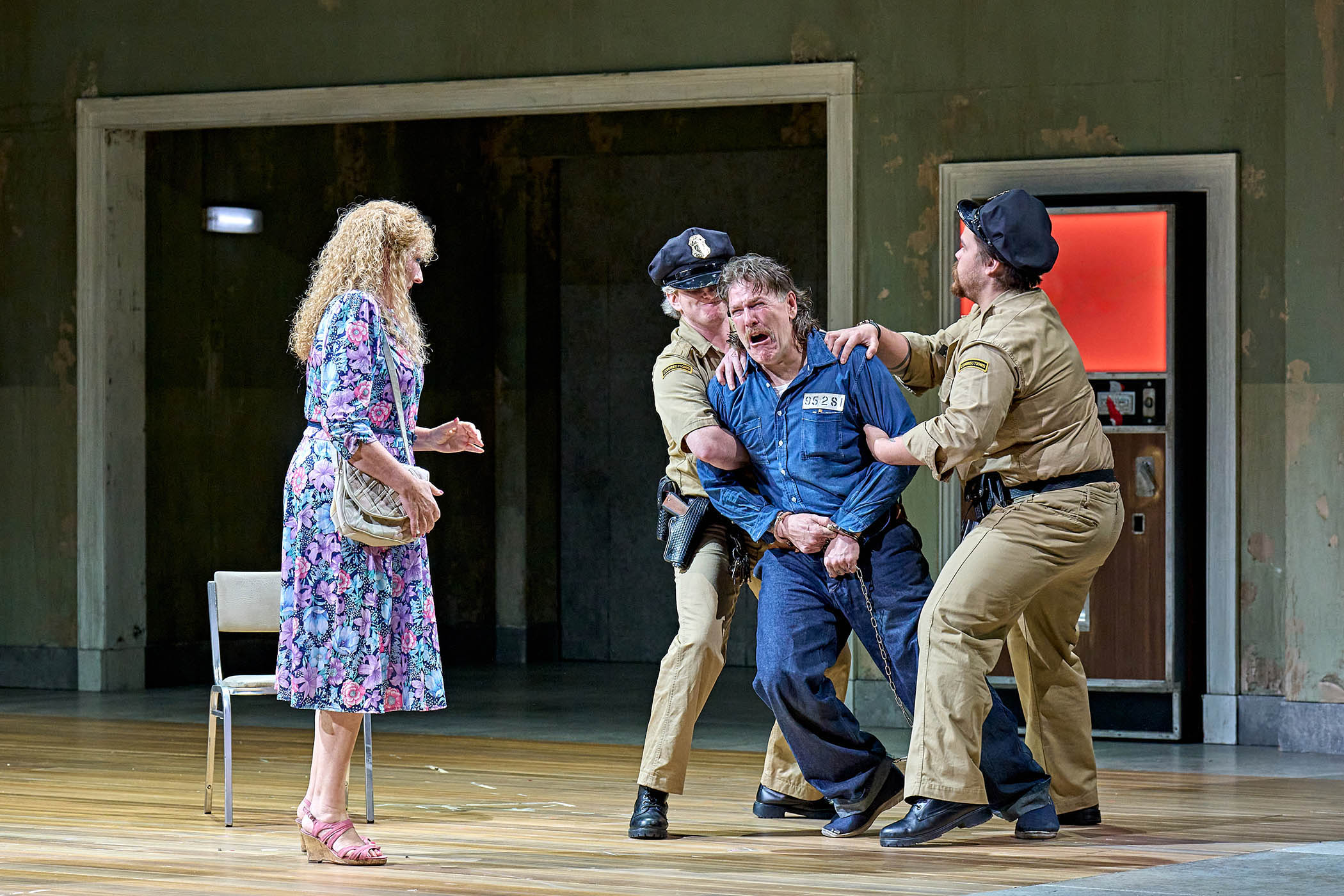
Michael Mayes is ‘brusque and compelling’ as Joseph De Rocher in Dead Man Walking, doing press-ups while singing
This is ENO on top form. Cast, orchestra and chorus, conducted with well-paced fervour by Kerem Hasan, give their all. Alex Eales’s fixed set – doorways, walkways and recesses in putty colours – functions cleverly as convent, courtroom and prison. In the demanding role of Sister Helen, Christine Rice exudes steely conviction and vulnerability. Michael Mayes’s De Rocher is brusque and compelling: he steals the show. All those press-ups while singing are as vigorous as when I saw him in the role in Madrid in 2018. That first encounter with the work, perhaps inevitably, disturbed in a way a second could not. Heggie’s music is fluent and eloquent, with energetic choruses and ensembles and moments of intense pain.Sarah Connolly as De Rocher’s mother, pleading for her son’s life, is especially raw and moving.
Opera has as many phases as the moon. Heggie has honoured Prejean’s true-life story and allowed the score to merge into the telling. Dead Man Walking makes us think about humankind’s biggest moral and philosophical issues, even if we dare to forget the music. Janáček’s The Makropulos Case takes a tale of crazed, near ridiculous artifice and breaks our hearts. Both have a place.
The Makropulos Case is at Royal Opera House, London, until 21 November; Dead Man Walking is at the Coliseum, London, until 18 November
Photographs by Camilla Greenwell/Royal Opera House/Manuel Harlan/ Richard Hubert Smith
Newsletters
Choose the newsletters you want to receive
View more
For information about how The Observer protects your data, read our Privacy Policy
